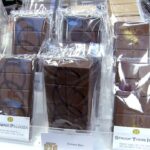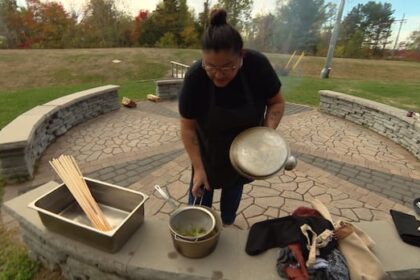PEIThe Nature Conservancy of Canada says more bird species are choosing to spend their winters on P.E.I. — but with less forest cover, they may need some help to make it through until spring.‘For some birds, P.E.I.’s winter is their summer climate, as bizarre as that might be’Thinh Nguyen · CBC News · Posted: Nov 15, 2025 5:00 AM EST | Last Updated: 8 hours agoListen to this articleEstimated 3 minutesThe audio version of this article is generated by text-to-speech, a technology based on artificial intelligence.Chickadees like this one, shown in a file photo, are among the bird species that stay on P.E.I. through the winter. (Bryce Hoye/CBC)The Nature Conservancy of Canada says more bird species are choosing to spend their winters on P.E.I. — but with less forest cover, they may need some help to make it through until spring.The conservation group’s Jensen Edwards said that while many of the familiar shorebirds seen on Island beaches in the summer like plovers and lesser yellowlegs have already flown south, plenty of others remain.“You’ve got your classic chickadees and nuthatches, as well as many species of woodpecker and larger animals… like owls and different raptors might still be in the forest and circling the fields around P.E.I.,” Edwards told CBC’s Island Morning.He said species such as snow geese and certain boreal birds actually migrate from farther north and find the Island’s winters milder compared to their breeding grounds.“For some birds, P.E.I.’s winter is their summer climate, as bizarre as that might be.”LISTEN | You may see some new birds this winter on P.E.I.:Island Morning6:16You may see some new birds this winter on P.E.I.We’ll hear from the Nature Conservancy of Canada about how birds are staying put on P.E.I. longer, and how they get through the winter. Development shrinks forest habitatFood availability is one major reason some birds stick around through the Island’s cold months.Edwards said many rely on natural sources like berry bushes and seeds found in forests, and on food provided in backyard feeders.“That’s why, over the next few months, it is quite helpful to put out your bird feeder,” he said.“You can really, really help support these birds that are toughing it out over the P.E.I. winter.”Woodpeckers are another species that can be spotted on P.E.I. during the winter months. (Bryce Hoye/CBC)He said habitat loss from development has made it harder for birds to find natural food sources across Canada.About 30 per cent of P.E.I. remains forested, Edwards said, which is why the Nature Conservancy of Canada and other groups are working to protect these habitats.Keep feeders clean to prevent diseaseIf Islanders are putting out feeders, Edwards said they should also make sure to keep them clean.Bird feeders can help support species that tough out P.E.I.’s winter season, says Jensen Edwards with the Nature Conservancy of Canada. (Joel Sowers/CBC)“Diseases like avian pox can spread at these bird feeders,” he said.He recommends washing feeders with hot water and soap, or with a 1-to-9 bleach-to-water solution to neutralize germs. During winter, feeders can be cleaned every 10 days to two weeks before refilling.Choose the right foodDifferent bird species have distinct food preferences, Edwards said, so it’s important to read the labels on seed mixes and choose accordingly.“So if you’re looking for chickadees or nuthatches, then maybe sunflower seeds are the way to go. But other birds might prefer different types of nutrition,” he said.“Suet is another great option in the wintertime when it’s cold enough to keep it safe for birds. So that’s a rich, fatty food that a lot of forest birds, like crossbills who thrive on spruce seeds, would find nutritious because it’s sort of replacing that.”With files from Island Morning
Bird feeders can make a difference for species wintering on P.E.I., nature group says











